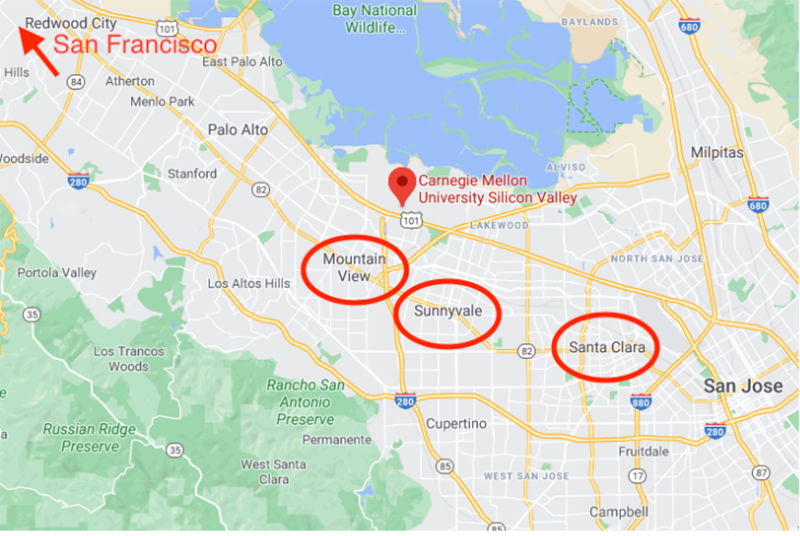Finding housing
CMU-SV is a non-residential campus, so all students secure off-campus housing in the surrounding area. Most students use online platforms or connect with future roommates through our student Slack community. If anything feels unclear or challenging during your move, the Student Affairs team is here to help connect you to resources or talk through options.
Here are some things to think about when starting your housing search:
Location

Most students choose to live in Mountain View, which is closest to campus. Some apartments are within a 15- to 25-minute walk. Other nearby cities that students live in include:
- Sunnyvale
- Santa Clara
- San Jose (easiest if you have a car)
When deciding where to live, consider how you’ll get to campus each day. Think about access to grocery stores, restaurants, public transit, and other daily needs.
Cost
Silicon Valley is an expensive place to live. Be realistic about your budget, and consider the full cost of living, including rent, utilities, food, and transportation.
To get a sense of current rent prices in different cities, you can explore online rental platforms that provide average rental costs by location. This will help you gauge what to expect and refine your housing search based on your budget.
Finding roommates
Most students find housing with one or more roommates. The CMU-SV Slack workspace has a dedicated channel (#bayarea-housing-roommates) where incoming and current students share listings, sublets, and roommate opportunities. Once you're enrolled, you can join CMU-SV’s Slack using your @andrew.cmu.edu email.
When to start looking
Start your housing search about six to eight weeks before your planned move-in date. Try to move in at least one or two days before your department’s orientation so you have time to get settled.
Short-term housing options
If you plan to search for long-term housing after arriving, you may need a short-term option for your first few weeks. Some students use:
- The NASA Lodge (right across the street from campus)
- Airbnb or other short-term rentals
For international students
If a landlord asks for a credit report, co-signer, or proof of employment, you can share your I-20 form. This document includes verified proof of living expenses and is issued by the Office of International Education. It can often serve in place of a credit history.